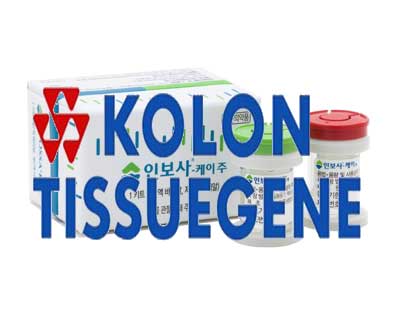In the wake of revelations that a key ingredient could transform into tumor-inducing kidney cells, Kolon Life Science's osteoarthritis gene therapy, Invossa-K Inj., which had its product license revoked, has been linked to numerous reported cases of tumors in patients after administration.

According to the Ministry of Food and Drug Safety (MFDS) data submitted to Rep. Jung Chun-sook or the main opposition Democratic Party of Korea (DPK) Party, as of June 30, there were 90 reported tumor-related incidents out of all the Invossa side-effects lodged with the Korea Institute of Drug Safety and Risk Management.
These cases encompassed a diverse range of tumors, including malignant endometrial neoplasm, stomach carcinoma, pancreatic cancer, liver neoplasm, malignant breast tumors in females, lung carcinoma, malignant thyroid neoplasm, rectal carcinoma, kidney cancer, bile duct carcinoma, adrenal gland tumors, acute leukemia, neuroglioma, metastatic kidney cancer, malignant lymphoma, prostate cancer, colon carcinoma, skin cancer, ovarian cysts, and others.
Out of the 90 tumor-related cases, causality assessments with Invossa were classified as difficult to evaluate in 73 cases and evaluation impossible in 17 cases.
According to the MFDS's criteria, difficult to evaluate means more data is needed or under review for an appropriate assessment, while evaluation impossible implies the information is either insufficient or contradictory, making a decision unattainable.
For the cases deemed difficult to evaluate, the ministry plans to gather safety information and monitor them continuously.
However, for cases marked evaluation impossible, further data collection proves challenging due to reasons like patient death or non-registration, and the MFDS has terminated the review on such cases.
Meanwhile, Kolon Life Science received a total of 8.2 billion won in subsidies from the government over three years, starting in 2015, when Invossa was chosen for the government's advanced biopharmaceutical technology development project.
In July 2017, Invossa became the country's first gene therapy to gain approval from the MFDS.
However, in July 2019, its product license was revoked. It was found that the transformed cells were not cartilage cells, as stated in the submitted data, but kidney cells (293-derived cells) capable of inducing tumors.
According to MFDS, it's estimated that Invossa has been administered to a total of 3,235 individuals, including 240 clinical trial participants and 2,995 post-market patients.
Although the MFDS does not believe there is significant cause for concern given Invossa's side effects, toxicity data, and radiation investigations, they have been conducting long-term follow-ups on these patients since 2019.
As of Aug. 23, 2,812 patients who received Invossa have registered in the ministry's long-term tracking system.
Related articles
- Korea’s 1st locally-developed new drug disappears into history
- Kolon TissueGene shares to resume trading on Kosdaq from Oct.25
- Will Kolon TissueGene get out of ‘delisting crisis’ caused by Invossa?
- Kolon TissueGene to get more funding from parent group, its chairman
- Is Kolon TissueGene's Invossa set to make a comeback?
- Kolon TissueGene still faces delisting risk due to mounting losses
- Kolon resumes P3 trial of gene therapy for osteoarthritis in US
- Kolon Life Science, DNDi to develop treatment for neglected tropical diseases
- Kolon Life Science's anticancer drug platform wins patent in Europe
- Kolon Life Science’s gene therapies win patents in India
- Court upholds nixing permit for Kolon Life Science's gene therapy Invossa

